Marlboro Psychiatric Hospital closed 25 years ago. Is mental health treatment better now?
- Oops!Something went wrong.Please try again later.
The alumni from Marlboro Psychiatric Hospital gathered this summer for the 25th anniversary of the facility's closing, reminiscing about co-workers and patients as if no time had passed at all.
They remembered the multicultural festivals on the hospital grounds; the first patient to be put on the breakthrough antipsychotic drug Clozaril; and the teamwork that kept the workplace safe and created an uncommon bond.
"I've been around the state, but my most favorite job was Marlboro," said Grace Moore-Mattes, 59, a social worker who now lives in Bethlehem, Pennsylvania. "There's a famous saying that we all say: 'If you can work at Marlboro, you can work anywhere.' Our hearts just broke when it closed."
It's been 25 years since the state-run Marlboro Psychiatric Hospital was shuttered, closing the doors on a facility was a symbol for New Jersey's behavioral health care system and launching a strategy of "desinstitutionalization," or treating patients with mental illnesses in the community instead of hospitals.
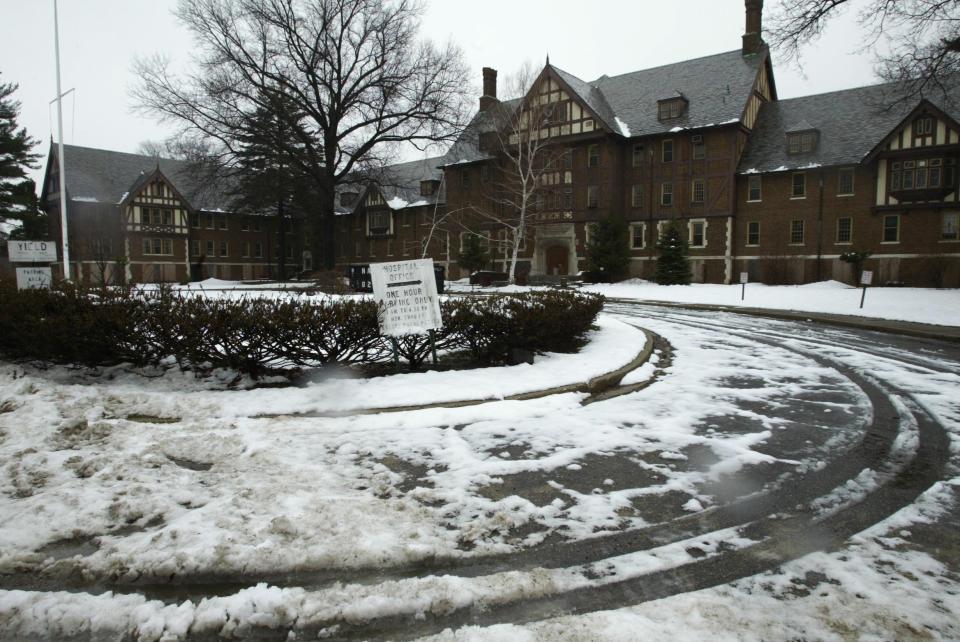
Investigating a mystery: Who left mystery flowers at grave in forgotten Marlboro Psychiatric Hospital cemetery?
Few think the decision to close the hospital was a bad one. Marlboro's legacy includes stories of patient abuse, disinterested employees and bribery. But 25 years later, with mental health top-of-mind, observers say New Jersey still is struggling with how to treat the illness.
"While we are much better off than we were years ago, it can be hard to find treatment and resources," said Dr. Rashi Aggarwal, director of the residency training program at Rutgers New Jersey Medical School in Newark, said. "It's better. We know a lot more. But it's still hard to access."
A complicated legacy
Moore-Mattes can recite the date of her first day at Marlboro Psychiatric Hospital, Jan. 28,1987. It was the start of a 8-year career there during which she built such close connections with her co-workers that they would vacation together.

The hospital was one of seven state-run psychiatric facilities. Built on 468 acres of farmland in western Monmouth County, it opened in 1931 and provided long-term care to residents whose mental illnesses made them a risk to themselves or someone else. Most of the patients were involuntarily committed.
The hospital employed 1,400 workers, who treated upwards of 700 patients at a time, working to improve their mental health enough that they could be discharged and live independently. Yet some patients in Marlboro spent their remaining lives at the hospital, forgotten.
A month after Moore-Mattes started, state Sen. Richard Codey, hearing of poor conditions at the hospital, decided to investigate for himself. He applied for a job using the Social Security number of an armed robber and the name of a rapist and was quickly hired.
Codey said he worked a handful of night shifts and remembers finding overcrowded conditions and an inattentive staff, leaving patients without much to do. His first shift, he saw a nurse lying on a couch watching TV.

Codey eventually introduced legislation requiring applicants at state institutions to undergo background checks.
"Mental health and what its focus is right now is a lot different than when I walked into that situation down in Marlboro," Codey said in an interview.
For the better?
"Much better. Much better," he said. "People are not afraid to say, 'I have mental health problems.'"
It wasn't the only scandal. The Marlboro hospital's history includes stories of abuse, bribery and environmental contamination.
A walk through the cemetery: Forgotten Marlboro graveyard recalls psychiatric hospital's grim past
By the time of Codey's report, advocates saw psychiatric institutions as inhumane and expensive. With the advent of antipsychotic drugs, they said patients could be better served outside of institutions — so long as they had access to housing and treatment.
Marlboro was targeted for closure, with the state diverting the bulk of the hospital's $68 million budget for community services. Patients moved to other psychiatric hospitals or group homes, but the majority was discharged and sent to live on their own.
Greg Roberts, the hospital's chief executive officer at the time, spoke to alumni at the reunion. His message: "Marlboro didn't close because we were doing a bad job. Marlboro closed because we were one of two state hospitals in the central part of the state, and the state, correctly, wanted to develop community mental health services more robustly."
"That was a good plan," he said in an interview. "I think that was executed well by a really talented group of people. And the question now is, 25 years later, how do things look?"
Roberts, who now lives in Oregon, could have asked the question another way: How does New Jersey treat mental health, anyway?
Mental health crisis: Students are increasingly refusing to go to school
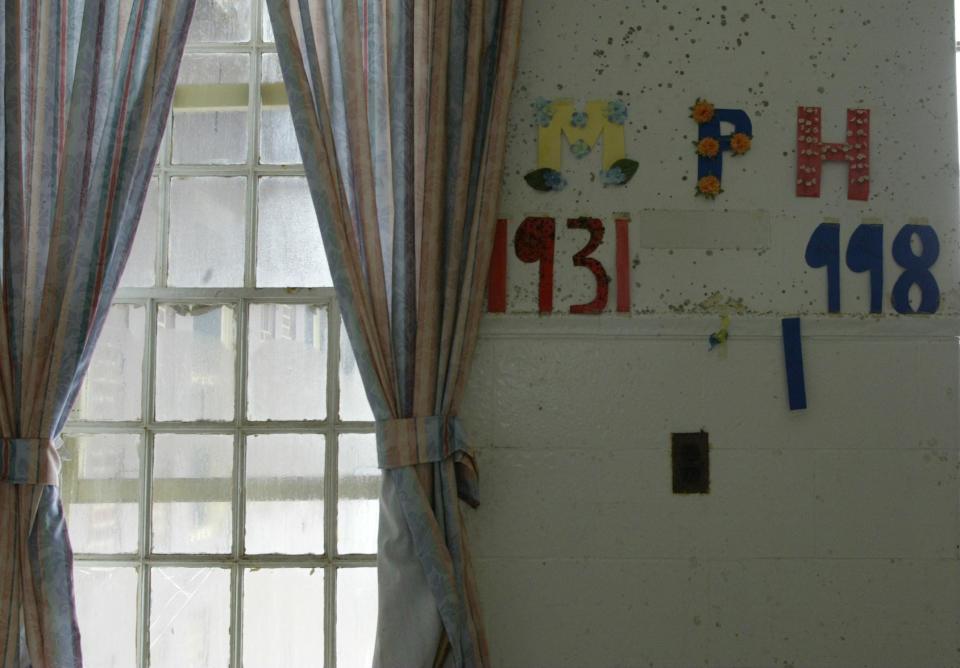
A system under strain
In the aftermath of Marlboro's closing, experts said, New Jersey's mental health care system includes public, private and nonprofit organizations providing treatment in a field that is undergoing change. Therapists use telehealth to expand their reach. Schools bring in therapy dogs. Primary care doctors ask patients about depression and anxiety.
Furry therapy: Why Ocean County students are spending time in school hugging dogs
By some measures, New Jersey fares well. The state's suicide rate, for example, is the nation's lowest. And the state has three-quarters of the psychiatrists needed to treat the demand, a shortage not as pronounced as the nation, which has just a quarter of the psychiatrists it needs, according to government data.
Other measures show the state's residents facing the same challenges as the rest of the country. Its drug overdose death rate, for example, has doubled during the past decade and now is at the national average, the U.S. Centers for Disease Control and Prevention said.
But as more people begin to address their mental health, that's putting the state's system under strain, providers and advocates say.
A 2022 survey by the Mental Health Association of New Jersey found patients in central and northern New Jersey looking for outpatient care needed to wait an average of more than six weeks for an initial appointment. Meanwhile, 25% of outpatient facilities weren't accepting new patients.
Substance abuse: Middle-aged US adults binge drinking, using marijuana at record levels, new study finds
"More people are recognizing that they can take the first step before they are in crisis, so we're getting a lot of calls from people who are more informed," said Joseph Galasso, a psychologist and chief executive officer for Baker Street Behavioral Health, based in Franklin Lakes. "In terms of utilization, it's way up. But I think people still don't have a really good understanding of what we do, which has made it difficult. So there's a lot of therapist shopping. Myself, I'll see somebody that may have tried two or three online services before they land in my office."
For involuntary admissions, there are signs New Jersey continues to search for solutions. Gov. Phil Murphy recently signed legislation over the objection of some civil liberty and mental health groups to allow hospitals to hold a mental health patient involuntarily for six days, up from three, giving the providers more time to determine the proper treatment.
Not giving up: How an Aberdeen laundromat is driving this entrepreneur's mental health comeback story
'Never properly put together in the first place'
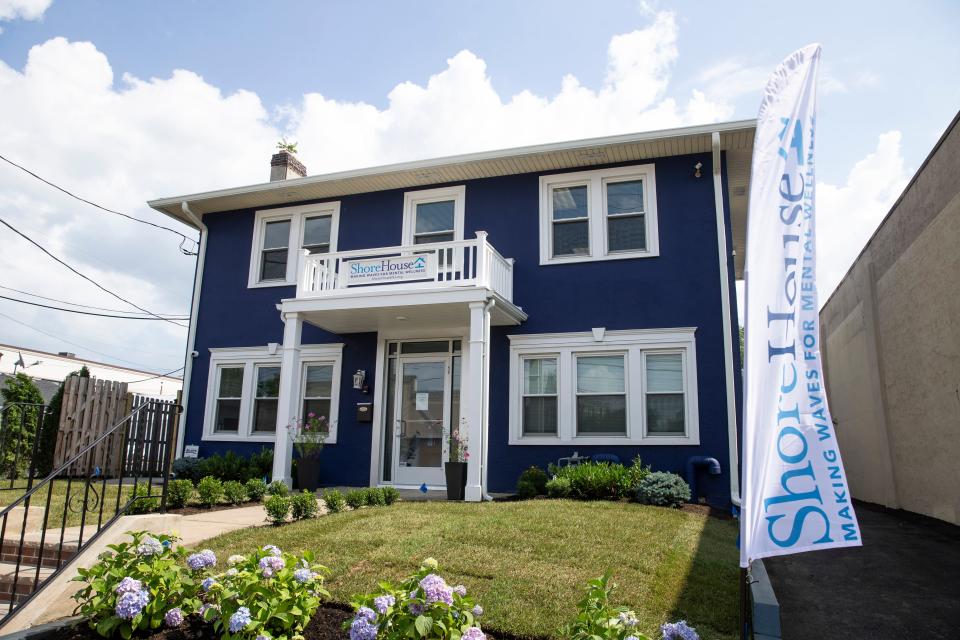
Providers are trying to fill in the gaps. The Shore House in Long Branch, part of a program known as the Clubhouse, offers residents diagnosed with a mental illness a place to gather during the day and on holidays to socialize and learn job skills.
The New York-based program started a chapter in Rumson in 2010. And organizers used grants of nearly $500,000, from Monmouth County and $100,000 from Impact 100 Jersey Coast, a nonprofit, to buy and renovate a 3,000-square-foot house in Long Branch. It reopened in June.
Executive director Rich Ambrosino said the goal is to prevent long stretches of isolation that can lead people with mental illness to return to the hospital. But the group doesn't provide clinical care, so it isn't reimbursed by insurance, instead relying mostly on private donations.
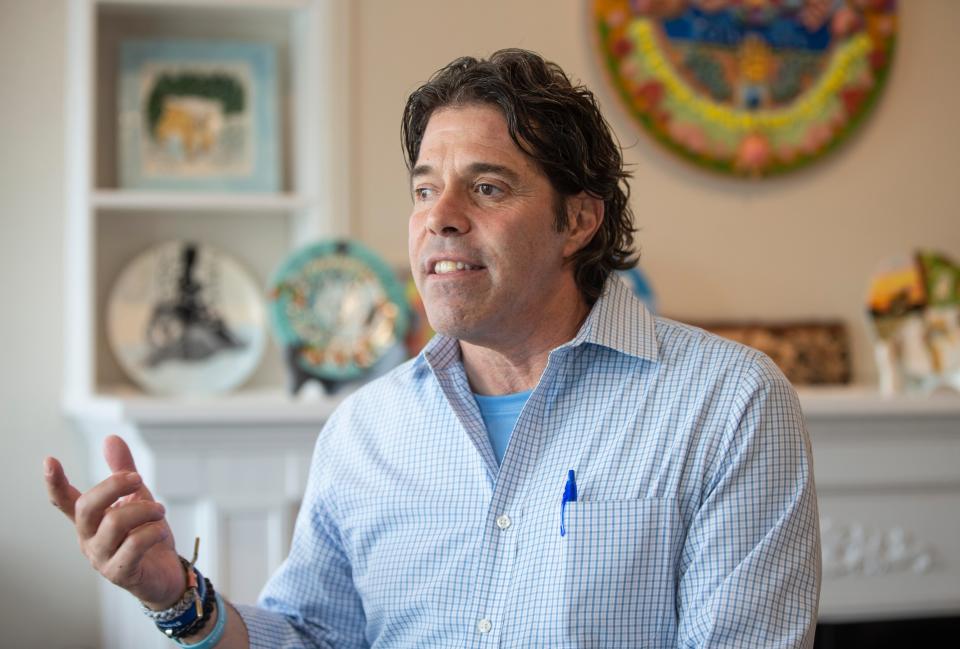
'A devastating public health crisis': What parents can do to help prevent teen suicide
Ambrosino said it is money well-spent. "The rehospitalization rate is way lower than it is for people who don't have access to a club," he said.
Some advocates say New Jersey continues to take a piecemeal approach to residents' mental health and would be better off investing in preventative measures.
Elena Kravitz, a senior staff advocate and investigator for Disability Rights New Jersey, an advocacy group, said one of her biggest concerns is the difficulty people have finding stable, affordable housing in a state where inventory is shrinking. One recent report found homelessness in New Jersey surpassed 10,000 for the first time since 2015.
"This goes on and on with people trying to fix things that were never really dis-repaired," Kravitz said. "They were never properly put together in the first place."
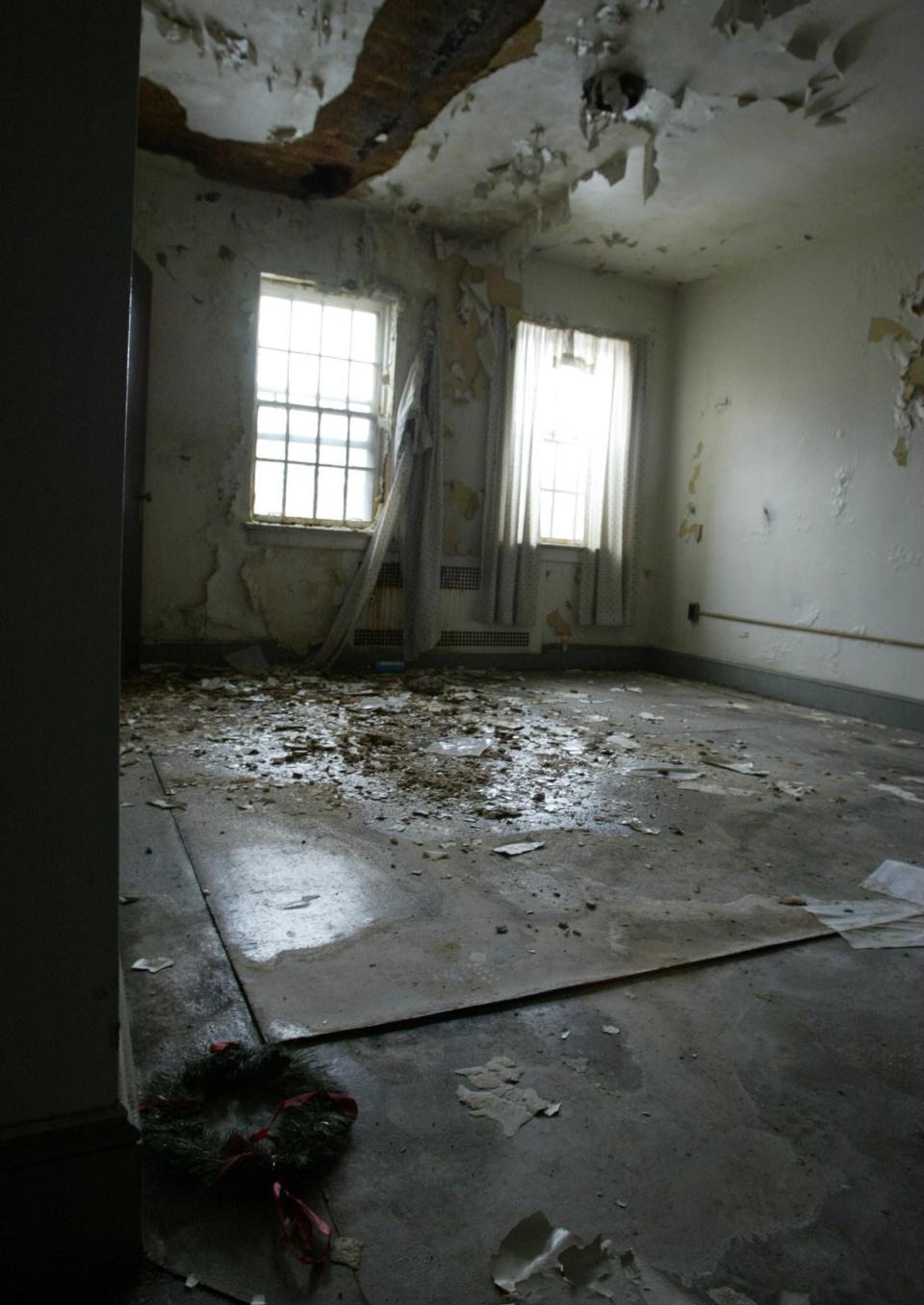
'Didn’t get what he needed': Years after viral video attack, homeless Belmar man dies
New Jersey demolished the Marlboro Psychiatric Hospital in 2013 and is nearing the end of an environmental cleanup, Marlboro Mayor Jonathan Hornik said. The land is slated to become part of the Monmouth County Park System.
Nearly 130 former hospital employees gathered at Jumping Brook Country Club in Neptune this summer. For all of the scandalous headlines, they took pride in their work, right up until the day it closed.
Grace Moore-Mattes said she could feel the stigma associated with the facility; neighbors would ask how she could possibly work there. But deep down, she knew she was making a difference in people's lives.
She kept letters from grateful family members of patients she cared for, blocking out the names to protect their privacy, to remind her she had support as well.
Sometimes, she said, "it wasn't until someone had an issue with mental health in their own lives or their family's lives that they recognized the importance of what we did at the hospital."
Michael L. Diamond is a business reporter who has been writing about the New Jersey economy and health care industry for more than 20 years. He can be reached at mdiamond@gannettnj.com.
This article originally appeared on Asbury Park Press: Is NJ mental health care better since Marlboro Psychiatric closed?

